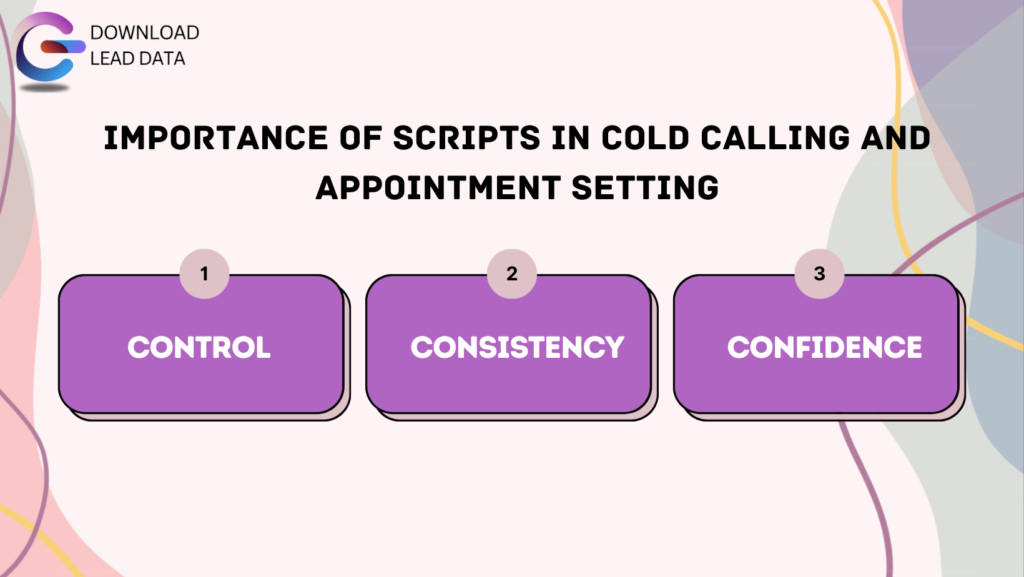Table of Contents
ToggleIntroduction
Appointment setting is gathering information about sales prospects, contacting them by phone, pre-qualifying and scheduling appointment. Cold calling where corporation representative often a virtual assistant leader.
This is the point at which well-written scripts become useful. A successful call can result in a constructive chat, a possible appointment or sale, and even with the appropriate script.
The importance of effective scripting for cold calling and appointment setting cannot be understated:

Choosing the appropriate words to use can have a big impact. A well-written script aids in keeping the caller in charge of the conversation, guarantees consistency throughout all conversations, and boosts the caller’s confidence.
1. Control
A script helps you steer the conversation by emphasizing the main advantages and features of your good or service and addressing typical objections.
2. Consistency
Regardless of who is calling, scripts guarantee that all prospective clients hear the same message. This guarantees a logical and constant brand image.
3. Confidence
Making cold calls might be unsettling. Having a script can help to calm this nervousness by acting as a safety net, which decreases hesitation and boosts confidence.
The importance of effective scripting for cold calling and appointment setting cannot be understated:
- A well-crafted script offers structure and guides the conversation in a professional manner.
- It helps manage time effectively and ensures that key points are not missed.
- Scripts provide a consistent message across all potential customers, ensuring brand message uniformity.
- An effective script can help to address objections and avoid common pitfalls.
Key Components of an Effective Cold Calling Script

The beginning is crucial. It’s about making a positive impression and earning the right to continue the conversation. Your introduction should include your name, the company you represent, and the reason for your call. It’s also important to thank the prospect for their time.
1. Value Proposition
This part of the script outlines what you can offer and why it’s unique. It should be concise, compelling, and focused on the prospect’s needs.
2. Engagement Questions
Questions are a great way to involve your prospect in the conversation and gather valuable information about their needs and preferences. Use open-ended questions that can’t be answered with a simple yes or no.
3. Handling Objections
Resistance is part of the process. Prepare responses to common objections in a way that is respectful and informative. It helps to demonstrate empathy, understanding, and patience.
4. Close and Next Steps
Be clear about what you want to happen next. This could be setting up a follow-up call, scheduling a demonstration, or arranging an in-person meeting. Be sure to confirm the details and thank the prospect again for their time.
Transitioning To Appointment Setting
Successful cold calling often leads to an appointment setting where a more in-depth conversation about the product or service happens. The best practices for setting appointments include:
- Be flexible and considerate of the prospect’s schedule.
- Be clear about the purpose and expected duration of the appointment.
- Send a calendar invite or reminder to the prospect.
Conclusion:
Cold calling can be disheartening most times but creating effective scripts helps us with getting fewer rejections. These tips, examples, and scripts will help you improve your cold-calling and appointment-setting efforts.
Content Writer at Download Lead Data
Asifa Khanum is a Content Specialist at Download Lead Data. I fulfilled roles in marketing that shaped her interest in finding innovative solutions to modern-day problems.


